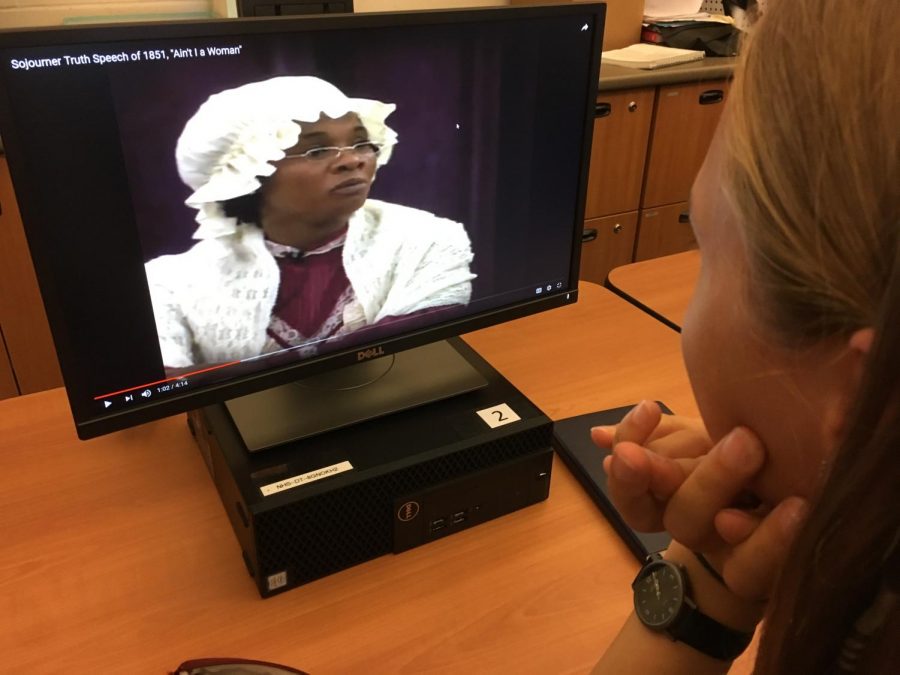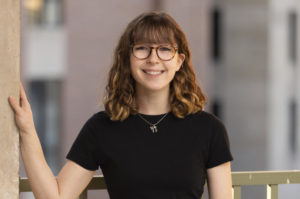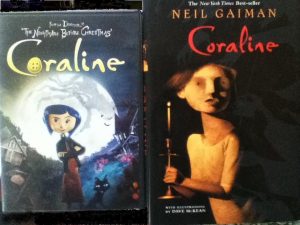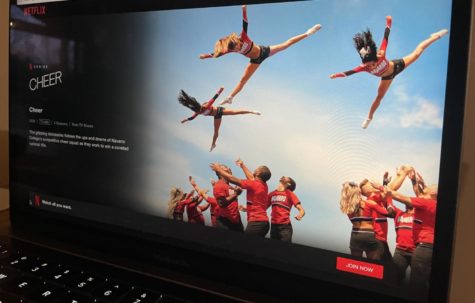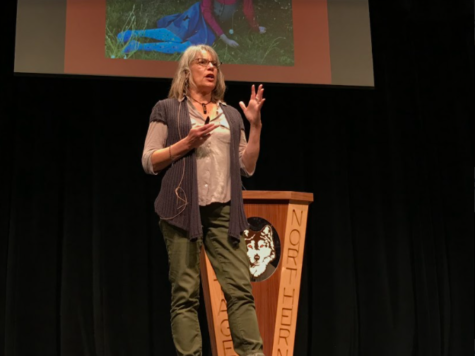Foreign exchange student Malin Rackles pursues feminist ideals
Rackles listens to one of her favorite speeches, “Ain’t I a Woman, too?” by Sojourner Truth. “It gives more diversity to the movement, especially because black feminism was in the 1850s and black families have not been regarded as much in the movement as they should be, so it’s important to look at minorities within the movement,” she says.
September 20, 2018
Senior Malin Rackles always knew in her heart that gender equality was not yet achieved. Rackles didn’t realize her feelings had a name to go with them. She was familiar with word feminist, but had no idea she was part of the movement. It came together when she watched Emma Watson’s HeForShe campaign speech at the United Nations. Up until then, she had no idea others felt the same.
Rackles is a 15 year old exchange student from Berlin, Germany. Rackles’ parents in Berlin are very supportive of her political view. Her father said, “Malin developed an early political awareness and started debating seemingly given facts. She started questioning the inequality of sexes as a girl,” he explained. Even at the age of nine, she would recognize the unfairness of culture.
Senior Ana Hurie, a 16 year old exchange student from Sevilla, Spain has developed a close friendship with Rackles. Both students consider themselves feminist. “When she [Rackles] wants something, she works for it until she gets it,” says Haurie. In the short period they have known each other, she recognizes Rackle’s love for justice. “No country in the world has achieved gender equality,” Rackles believes. Despite the majority of the world’s disdain of feminism, Rackles focuses on the core message of the movement: that men and women are to be equal.
Rackles has faced judgement by her peers for her beliefs, and one of her peers from Germany in particular often antagonizes her for her belief. He often sends pictures and messages making fun of the feminist movement, but she is undaunted. She believes that feminism is a much needed movement, even now. She continues to encourage people to speak up when unfairness is seen. To her, feminism is about much more than is conceived by the general public. It’s about fairness and equality.



